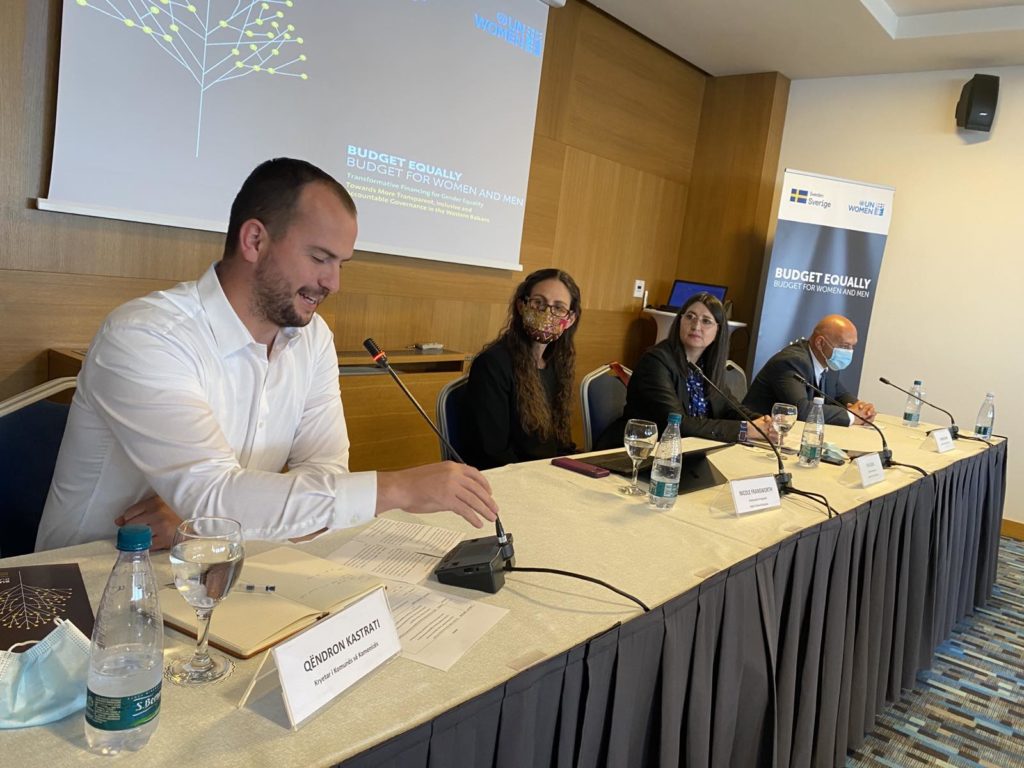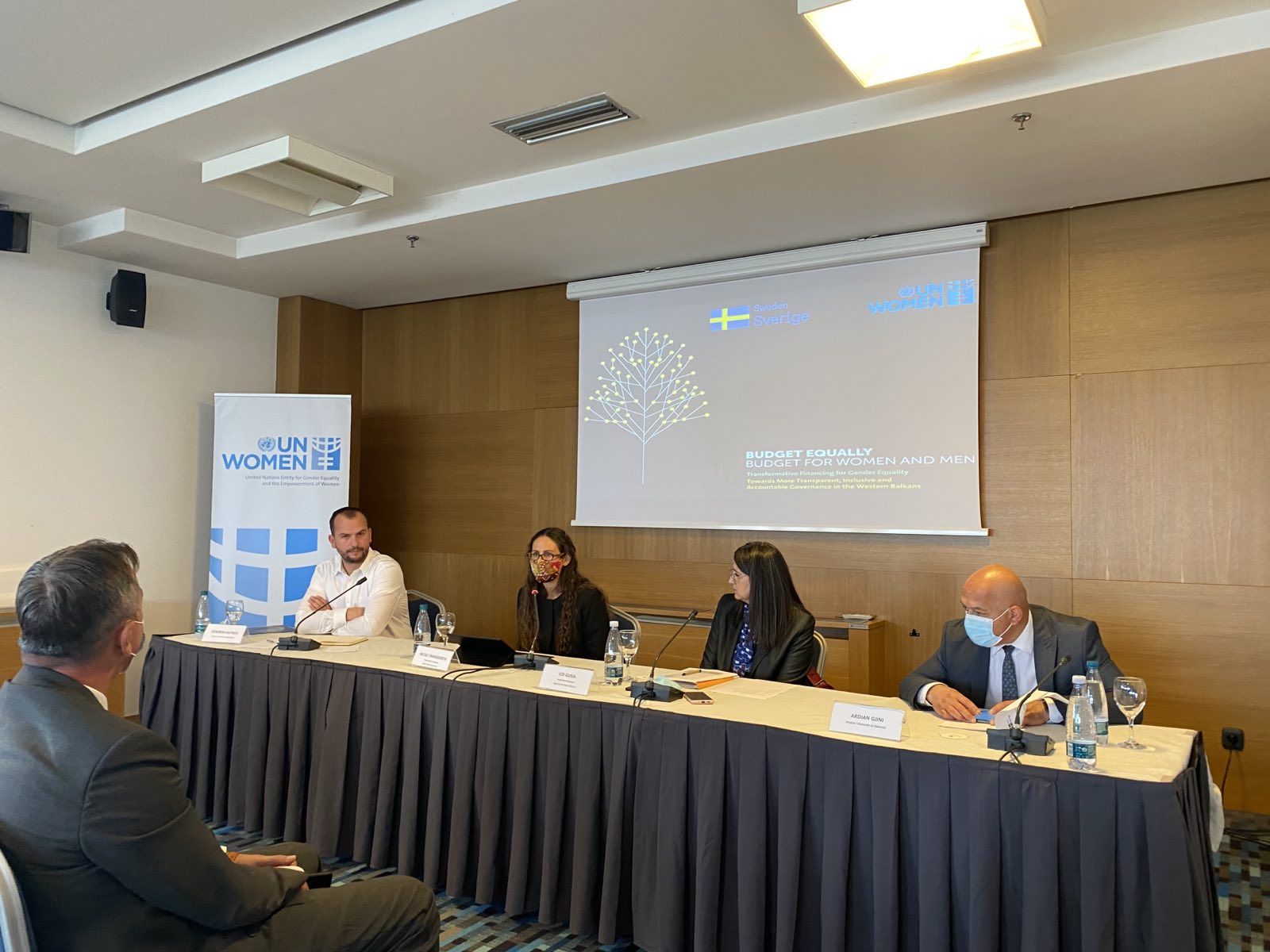Today UN Women launched a report Capacity and Skills Development needs on Gender Mainstreaming, GRB, and Gender Responsive COVID-19 Interventions at the Local Government Level in Kosovo, prepared by IDRA. Key stakeholders participated, including Edi Gusia from the Agency for Gender Equality (AGE) in the Office of the Prime Minister who spoke about important allocations for gender equality and the urgency of institutionalising gender budgeting; Salvador Elmazi, Budget Director from the Ministry of Finance, Labour and Transfers (MFLT) who emphasized that gender budgeting is a legal obligation and requested within budget circulars; Sazan Ibrahimi, Director of the Association of Municipalities of Kosovo; and municipal officials who showcased best practices in Kamenica and Gjakova. The event was hosted by Vlora Nushi, Head of UN Women in Kosovo, supported by Sida.

On behalf of KWN, Nicole Farnsworth presented key recommendations that have arisen from KWN’s research and monitoring of institutions’ implementation of their legal obligations related to implementing gender-responsive budgeting in Kosovo. KWN’s main recommendations included:
- AGE and MFLT must urgently finalize the draft Concept Document for Gender-responsive Budgeting in Kosovo, introducing it systematically into Kosovo’s public finance management system as obligatory.
- Municipalities should undertake gender analyses, as per the Law on Gender Equality, best practices in gender-responsive budgeting, and budget circulars. They should use these to inform budget planning and implementation, establishing objectives and indicators towards furthering gender equality in every sector. This is not relevant only to a budget line for gender equality officers or shelters, though these are important. Additionally, furthering gender equality must be integrated into every sector, including the environment, transport, sports, culture, and infrastructure investments, among others. KWN’s Practical Guide explains how this is possible.
- MFLT needs to better control budget proposals, ensuring budget organizations submit the requested gender-responsive budgeting annex and that it is of sufficient quality. They can turn back budget requests if the annex is not submitted or done properly.
- Municipalities need to budget for furthering the capacities of finance officers in gender-responsive budgeting by allocating funds for officers to attend the already-established training curriculum on this provided by the Kosovo Institute for Public Administration (KIPA). This should be followed by mentoring during the budget process until officers fully understand how to undertake gender-responsive budgeting.
Based on its research, KWN has made several other recommendations for municipalities to consider for their 2022 budgets, towards furthering gender equality, available here.
KWN has been engaged in gender-responsive budgeting since 2011, including supporting KIPA and AGE in developing the curriculum on gender-responsive budgeting. KWN is part of the Gender Budget Watchdog Network, through which civil society organizations are monitoring and supporting government efforts to institutionalize gender-responsive budgeting in the Western Balkans and Moldova.







